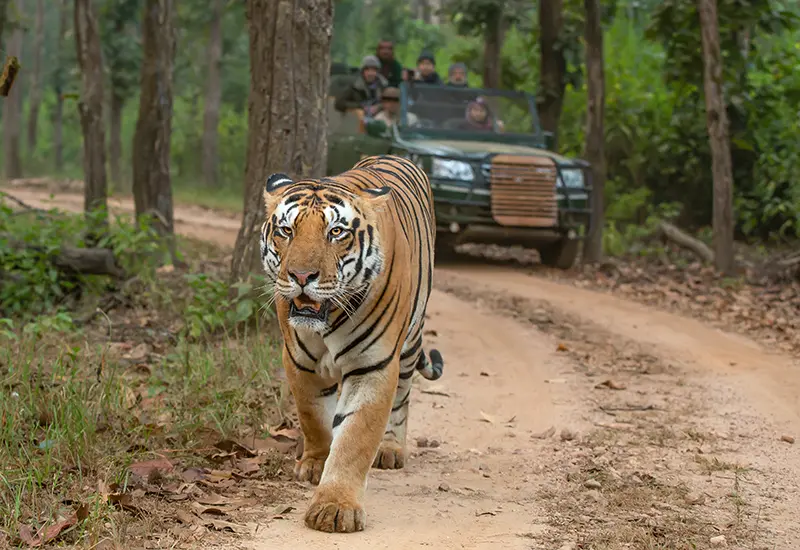 Kanha National Park, located in the state of Madhya Pradesh, India, is one of the largest and most well-known national parks in the country. It was established in 1955 and covers an area of over 940 square kilometers (363 square miles). Kanha is renowned for its rich biodiversity, particularly its population of Bengal tigers, making it one of the prime tiger reserves in India.
Kanha National Park, located in the state of Madhya Pradesh, India, is one of the largest and most well-known national parks in the country. It was established in 1955 and covers an area of over 940 square kilometers (363 square miles). Kanha is renowned for its rich biodiversity, particularly its population of Bengal tigers, making it one of the prime tiger reserves in India.Here are some key features and highlights of Kanha National Park:
Flora and Fauna: Kanha is characterized by its dense forests, grassy meadows, and abundant wildlife. Apart from tigers, it is home to a variety of other animals such as leopards, sloth bears, wild dogs, deer (including the rare barasingha), Indian bison (gaur), and over 300 species of birds.
Tiger Conservation: The park is famous for its successful conservation efforts focused on the Bengal tiger. It was one of the inspirations for Rudyard Kipling's "The Jungle Book," and the park's lush landscapes served as the setting for the fictional "Seonee" forest.
Tourism: Kanha attracts a significant number of tourists, both domestic and international, who visit to experience its wildlife and natural beauty. Safari tours are the primary way to explore the park, offering opportunities for wildlife sightings and birdwatching.
Conservation Initiatives: Conservation efforts in Kanha include habitat preservation, anti-poaching measures, and community involvement in wildlife conservation programs. The park authorities work closely with local communities to promote sustainable development and minimize human-wildlife conflict.
Accommodation: The park offers various accommodation options ranging from luxury resorts to budget-friendly lodges, catering to different types of visitors. Staying within or near the park allows visitors to immerse themselves fully in the wilderness experience.
Best Time to Visit: The park remains open to visitors from October to June, with the peak tourist season typically from November to March when the weather is pleasant and wildlife sightings are more frequent. The park remains closed during the monsoon season (July to September) due to heavy rainfall.
Kanha National Park continues to be a significant hub for wildlife enthusiasts, researchers, and conservationists, contributing to the conservation of India's natural heritage while offering visitors a memorable wilderness experience.
